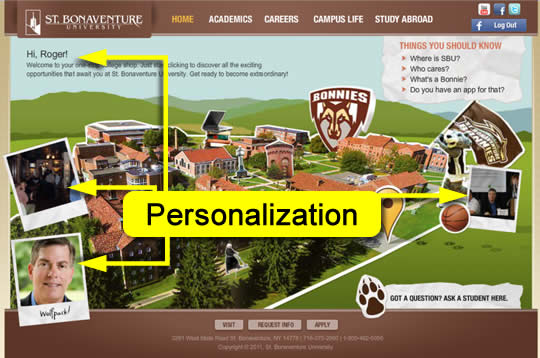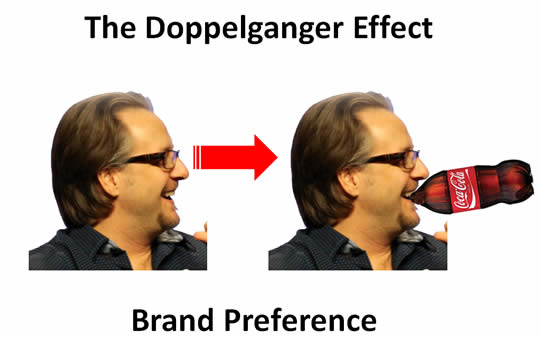How Brain Science Turns Browsers into Buyers: SXSW Recap
If you were one of the many folks at SXSW who weren’t able to get into the room to view Sunday’s SXSW panel, How Brain Science Turns Browsers into Buyers, or if you weren’t at SXSW at all, here’s a recap. (If you were turned away at the door, or had to sit on the floor, please accept our apologies. We don’t pick the venue, and this year SXSW put branding and neuromarketing panels in smallish rooms at the Intercontinental. I’ve heard that since our panel presented, SXSW management has expanded the room size at that location to better meet demand. More commentary: Has SXSW Outgrown Austin?) Rather than try and regurgitate the content of each of the four brief presentations by the panelists, I’m providing links to their content on the topics they spoke about as well as some related resources.
Derek Halpern
 Derek Halpern is the founder of Social Triggers, where he explores the use of psychology and neuroscience to convert visitors into leads, and leads into buyers. Derek’s topic was the use of fonts and their effects on visitor behavior.
Derek Halpern is the founder of Social Triggers, where he explores the use of psychology and neuroscience to convert visitors into leads, and leads into buyers. Derek’s topic was the use of fonts and their effects on visitor behavior.
Derek reviewed some of the research on fonts in his excellent post, What’s the Best Font For Your Site? (The Psychology of Fonts). Derek writes, “Once you know the psychology behind fonts (simple and fancy fonts), there is no best font per se… However, I believe that your MAIN font should be a simple font, always. Then, you’ll also want to create contrast between your fonts. You’ll want a font for your headlines, another font for your body copy, and potentially an accent font.”
Derek also touched on content width, which he wrote about in What’s the Perfect Width for Your Online Content?: “I suggest you use this little trick I developed. Remember, if you want people to read your content, you only need to get them to read the first few sentences. So, the trick is, make the beginning part of your article a shorter line length than the rest of your article. How do you limit the line length towards the beginning of your article? Use an half-width image below your headline…” Follow Derek on Twitter: @derekhalpern.
Related Neuromarketing Resources: Convince with Simple Fonts, When Fancy Fonts Work, Fancy Fonts Boost Recall.]
Brian Clark
 Brian is the CEO of Copyblogger media, and the principal author of the wildly popular marketing blog, Copyblogger. The ability of stories to grab and hold our attention has been an ongoing theme at that blog was Brian’s focus. He described the way stories activate the brain to simulate the actions being described in the text, and talked about research that showed how people attempt to fit the motion of shapes on a screen into a coherent story. Sometimes, a shape is just a shape…
Brian is the CEO of Copyblogger media, and the principal author of the wildly popular marketing blog, Copyblogger. The ability of stories to grab and hold our attention has been an ongoing theme at that blog was Brian’s focus. He described the way stories activate the brain to simulate the actions being described in the text, and talked about research that showed how people attempt to fit the motion of shapes on a screen into a coherent story. Sometimes, a shape is just a shape…
One example of brilliant storytelling Brian mentioned was the Wall Street Journal direct mail letter that ran for decades with virtually no changes, creating an estimated $2 billion in revenue for the paper. In The Greatest Sales Letter of All Time, Brian quotes the classic letter that contrasts two similar men who ended up in different places:
Both were happily married. Both had three children. And both, it turned out, had gone to work for the same Midwestern manufacturing company after graduation, and were still there.
But there was a difference. One of the men was manager of a small department of that company. The other was its president…
You can guess the publication that caused the difference in outcomes in this fictional scenario! Follow Brian on Twitter: @copyblogger.
[More Resources: How to Write Weapons-Grade Copy (my post at Copyblogger), Your Brain on Stories, Vivid Stories Change Donor Behavior, Build Loyalty like George Bailey, Stories Synchronize Brains, .]
Dr. A.K. Pradeep
 A.K. Pradeep. Dr. Pradeep is the founder of NeuroFocus and the author of The Buying Brain: Secrets for Selling to the Subconscious Mind
A.K. Pradeep. Dr. Pradeep is the founder of NeuroFocus and the author of The Buying Brain: Secrets for Selling to the Subconscious Mind. Those of you who were in the ballroom at SXSW know that we experienced a failure of the conference laptop which had Dr. Pradeep’s slides and movie. Fortunately, Pradeep was more than able to entertain the audience while the A/V guys sorted out the power issues.
I won’t attempt to summarize Pradeep’s presentation, but I’d highly recommend The Buying Brain to those wanting to get an in-depth understanding of how studies both at Neurofocus and elsewhere have enabled key insights into consumer behavior. Pradeep capped off his talk with this movie:
Follow Pradeep on Twitter: @akpradeep.
[More Resources: Neurofocus, Neurofocus/Nielsen site, About A.K. Pradeep, The Buying Brain at Amazon.com.]
Roger Dooley
 I led off with a quick intro to describe the importance of understanding non-conscious motivations that drive buying behavior, and then provided two examples of research-based strategies to improve conversion. The first was the Doppelganger Effect, in which we develop a brand preference when we see ourselves using a product. This happens even when we fully understand that it’s a crude simulation of reality, and that the pictured event never really occurred.
I led off with a quick intro to describe the importance of understanding non-conscious motivations that drive buying behavior, and then provided two examples of research-based strategies to improve conversion. The first was the Doppelganger Effect, in which we develop a brand preference when we see ourselves using a product. This happens even when we fully understand that it’s a crude simulation of reality, and that the pictured event never really occurred.


The second strategy was based on research that shows when primed with an image of an attractive woman, male buyers experience behavioral changes and become more oriented toward short-term gratification and goals. Here’s my whole deck:
Follow me on Twitter: @rogerdooley.
[More Resources: Roger Dooley – books & speaking, Social Personalization and the Doppelganger Effect, Get Schooled: Use Social Personalization Like Higher Ed, A Pretty Woman Beats a Good Loan Deal, Attractive Women Make Men Impatient.]
Big thanks to all who turned out for the panel and to SXSW for including us!
